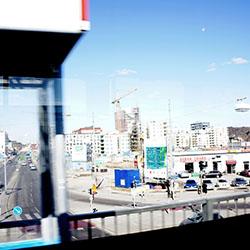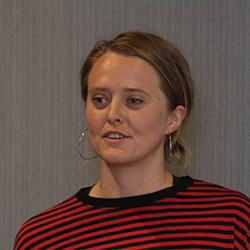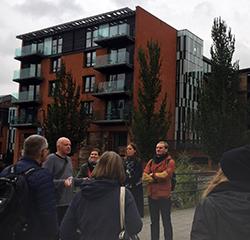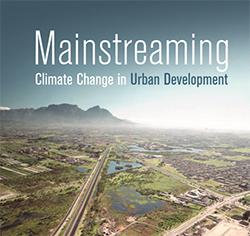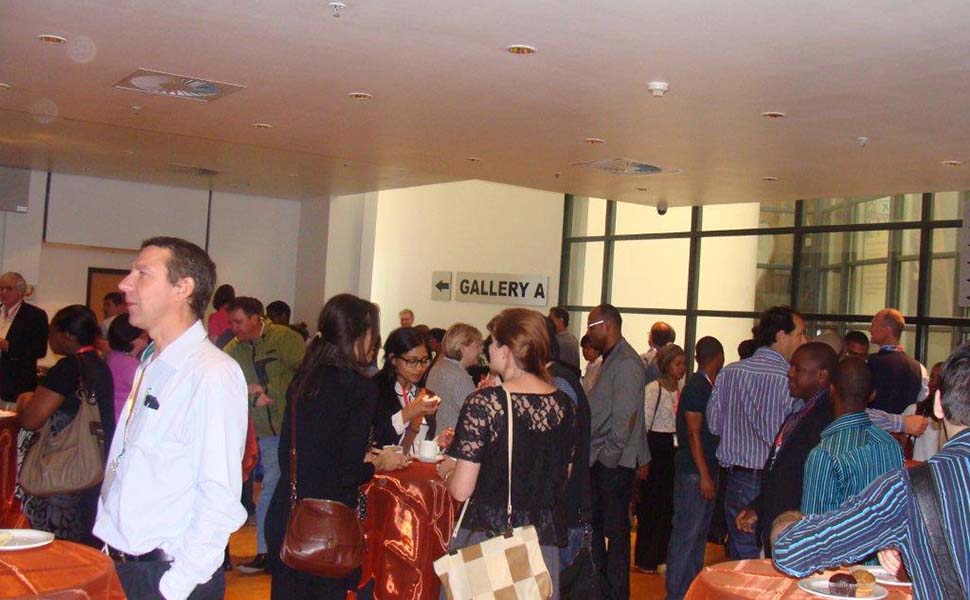
Cape Town celebrates World Town Planning Day
On 14 November 2013, the City of Cape Town invited delegates to a conference entitled ‘Planning, the critical link in the development process’, to mark World Town Planning day (celebrated internationally on the 8th of November). This conference, the content and theme of which was organised by members of the Mistra Urban Futures Cape Town platform, built on sessions hosted by the City of Cape Town commemorating World Town Planning day in 2007, 2009 and 2011. The topic of the programme spoke to the Mistra Urban Futures focus areas of green, fair and dense.
The conference, attended by planners in the public and private domains, as well as financiers, developers and academics, sought to bring these different groups into a setting where the overall aims of planning and development were discussed in isolation of a specific project, which is usually the preface for these groups meeting. The conference thus afforded the opportunity to broker a different relationship among these stakeholders, to discuss the roles of planning and development, and how to get these city-making processes to align in more efficient, equitable and sustainable ways.
The proceedings were organised according to the development process, which provided a framework in which to have a discussion about the bigger questions in planning and development. The first session explored the idea or vision of a project. This was followed in the second session by a presentation on how finance is typically raised for development. This session also included a panel discussion with financiers, who discussed what they consider when financing projects, as well as some of the limitations they experience. After lunch, the development and construction processes were elaborated on. Subsequent to this was a session on marketing and asset management.
This conference showed that private developments are the main ‘delivery mechanism’ through which cities are built – where these developments occur fundamentally determine the performance of our cities. It is thus crucial for planners to understand the drivers behind this development process, in order to shape how this occurs in the future. Planners are, however important in this process, as poor developments create negative externalities that society has to bear.
Through providing a platform for different parties to gain an increased understanding of the planning and development processes and how these are reliant on each other in order to create cities that speak to all parties’ visions, the conference showed that successful developments were underpinned by strong partnerships between all entities involved. It became clear that the City should also become a partner in order to improve the way developments take place. Calls for further engagement between different groups (for example, the financiers and local government) suggest that the conference provided a necessary space to prompt interaction.
Further discussion showed that for development to occur in the right place and in the right form, planners need to lead by “shaping the market”. They should do this by not focussing on land uses but rather on the activities that occur in cities. By creating environments where activities can be successful undertaken, they will create the demand for space in the particular locations and the development and finance industries will respond accordingly. From a process point of view, planners then need to assist by allowing the development industry to respond to the market created in the timeframes required. In this way, planners can be proactive and normative but in a pragmatic and more effective manner.
The City of Cape Town’s World Town Planning day conference was a ‘contribution towards creating a better world for future generations’. Through building on previous engagements on the World Planning Day theme, the importance of the roles of planning and development as place-making tools was emphasised. The fact that this conference highlighted the importance of partnerships and working together can surely only improve the way South African cities are being conceived and achieved.
Read more on the City of Cape Towns web
Photo credit: City of Cape Town
